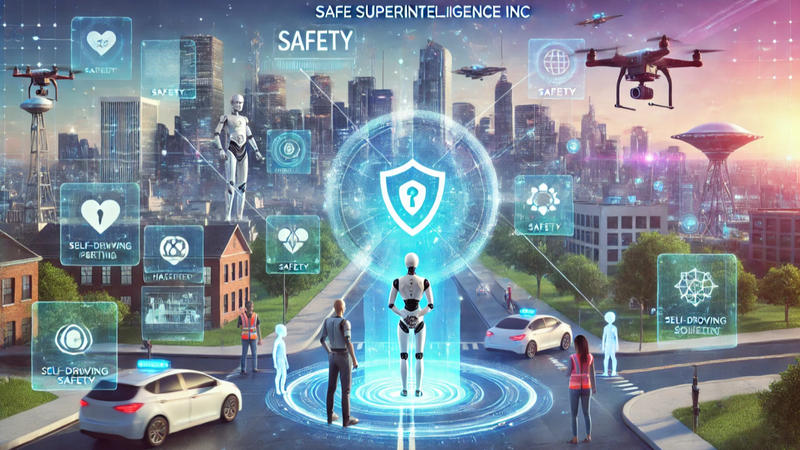Published 04:15 IST, September 5th 2024
Ex-OpenAI Chief’s new venture Safe Superintelligence raises $1 billion
Currently employing a team of 10, SSI plans to channel this substantial funding into acquiring computing resources and recruiting top-tier talent.

SSI scores $1 billion: Safe Superintelligence (SSI), a new startup founded by OpenAI's former chief scientist Ilya Sutskever, has raised $1 billion in funding to advance the development of safe artificial intelligence systems that aim to surpass human capabilities, as reported by Reuters.
Currently employing a team of 10, SSI plans to channel this substantial funding into acquiring computing resources and recruiting top-tier talent. The company's operations will be based in both Palo Alto, California, and Tel Aviv, Israel, focusing on building a highly trusted team of researchers and engineers.
While SSI has not disclosed its current valuation, according to a Reuters report citing sources, SSI's valuation could be around $5 billion.
Investors back foundational AI
This funding round highlights a continued investor interest in talent dedicated to foundational AI research, despite a general decline in enthusiasm for funding such ventures that may be unprofitable for extended periods, leading some founders to shift to major tech companies.
Notable venture capital firms including Andreessen Horowitz, Sequoia Capital, DST Global, and SV Angel participated in this funding round, alongside NFDG, an investment partnership led by Nat Friedman and SSI’s CEO Daniel Gross.
Gross stressed the importance of having investors who understand and support SSI's mission to achieve safe superintelligence. He said that the company intends to focus on several years of research and development before introducing its product to the market.
AI safety remains a critical concern amid fears that uncontrolled AI could pose risks to humanity or even lead to extinction. The topic has sparked debate, with a proposed California bill aiming to impose safety regulations on AI companies. This proposal faces opposition from companies like OpenAI and Google, while receiving support from entities such as Anthropic and Elon Musk's xAI.
Sutskever, a leading figure in AI, co-founded SSI in June along with Gross, who previously led AI efforts at Apple, and Daniel Levy, a former OpenAI researcher. Sutskever serves as chief scientist, Levy as principal scientist, and Gross oversees computing resources and fundraising.
Sutskever’s OpenAI shift
Reflecting on his departure from OpenAI, Sutskever indicated that his new venture represents a different challenge from his previous work. Last year, he was briefly on the board of OpenAI's non-profit parent organisation, which initially voted to remove CEO Sam Altman due to a "breakdown of communications."
Sutskever later reversed his stance and supported Altman's reinstatement, leading to his own removal from the board and departure from the company in May.
Post-departure, OpenAI dismantled Sutskever's "Superalignment" team, which was dedicated to ensuring AI alignment with human values in preparation for scenarios where AI might surpass human intelligence. In contrast to OpenAI’s unconventional corporate structure, SSI operates under a traditional for-profit model.
SSI is focused on building a team with not only extraordinary capabilities but also strong character, eschewing an overemphasis on credentials and field experience. Gross remarked on the value of finding individuals who are genuinely interested in the work rather than the surrounding hype.
SSI seeks cloud, chip allies
The startup plans to partner with cloud providers and chip manufacturers to meet its computing needs, although specific partnerships have not yet been determined. Typical partners for AI startups include companies like Microsoft and Nvidia.
Sutskever, an early proponent of scaling AI models through increased computing power, intends to approach this strategy differently at SSI. He highlighted that while many focus on the scaling hypothesis, it is crucial to consider what exactly is being scaled.
"People often work long hours, but it’s not just about speed," Sutskever said. "Doing something different can lead to extraordinary results."
(With Reuters Inputs)
Updated 04:15 IST, September 5th 2024